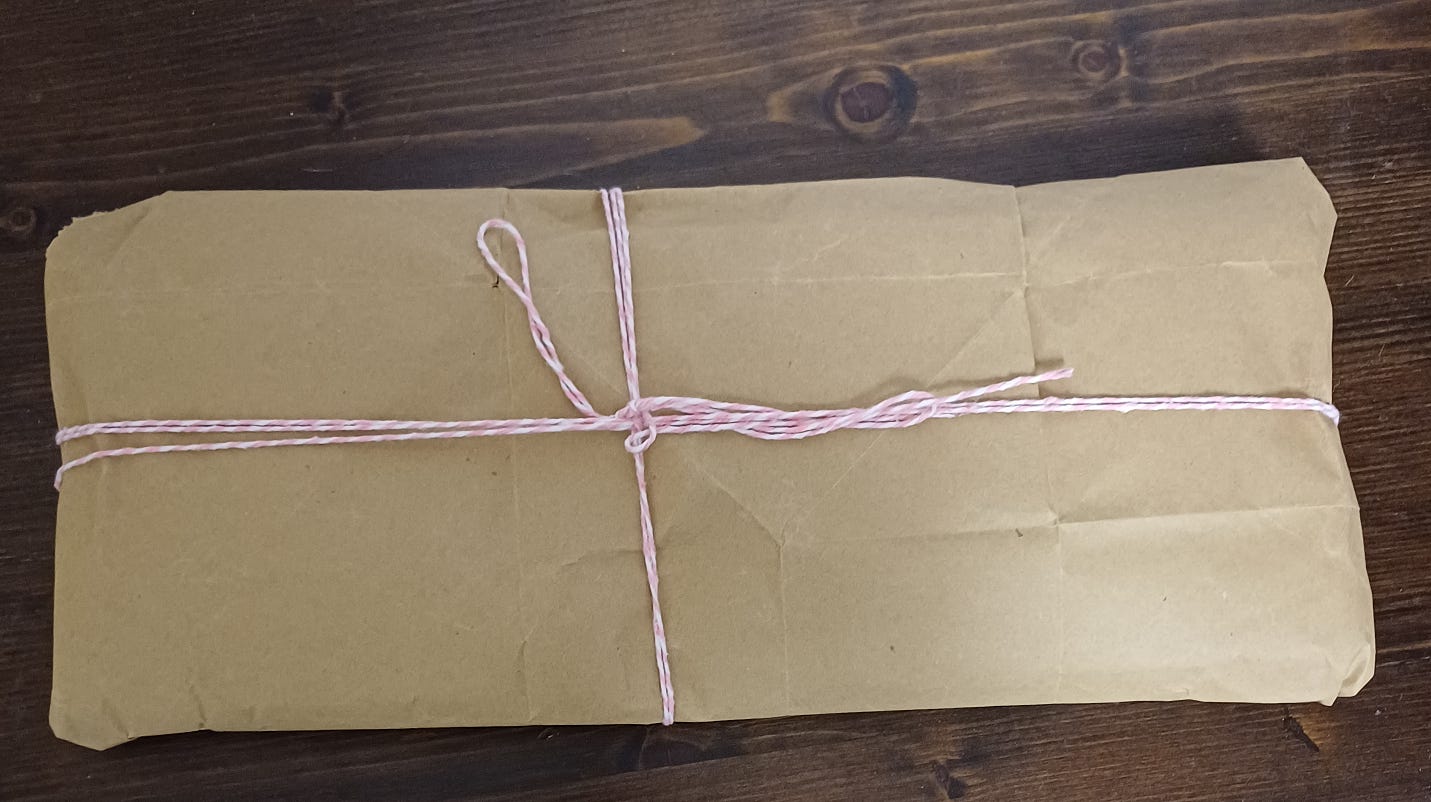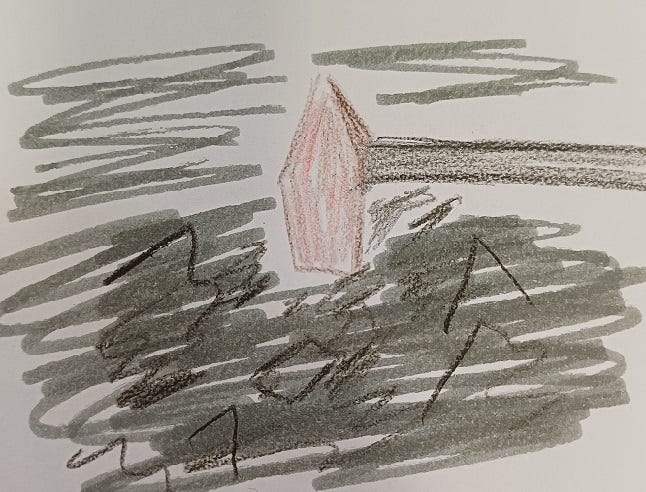Life was always hard for Jews in Russia, but it got much harder after the Bolshevik Revolution in 1918. The new communist Soviet Union was a terrible place for Jews. The government opposed religion. It taught schoolchildren that there is no god and the Bible is just stories, and outlawed all signs and customs of Judaism.
Jews were trapped. Leaving the Soviet Union was very difficult. It took years to get permission to leave the country. When someone left, they were allowed to take just two suitcases. At the border, Soviet guards opened all suitcases and took everything valuable. But many Jews still left. Among those was an old woman named Lena.
As a child before the communist revolution, Lena grew up in a home that was strongly Jewish. She went to Jewish schools and loved the Jewish religion. As an adult, she always wanted to be free. So when she had the chance to go to the United States with her son and his family, she went even though she was 85 years old. I heard Lena’s story from her granddaughter.
Lena left the Soviet Union with just two suitcases and a big purse. But at the bottom of her big purse was her most valuable possession: a thin package wrapped in brown paper and tied with string. On it were written the words: As soon as I die, open this package and follow the directions.
From the time of the revolution Lena had taken that package wherever she went. When the paper got dirty and torn she changed it. The clean package went right back to the bottom of her big purse. Everyone in the family knew about the package and the words on it. But she would not tell anyone what was in the package or why it was important.
In America she went to synagogue on Sabbaths and holidays whenever she could. Her son and his family were not religious, but they respected Lena’s beliefs, and they promised her that when she died they would be sure she had a proper Jewish burial.
At the age of 97, Lena died. Almost her last words were, “When I die, open my package and do what it says.” When her son opened the package, he found some plain white cloth and a long note in Lena’s beautiful handwriting.
The note described what she wanted done to her body before she was buried.
Her son was confused. He had promised her a proper Jewish burial, but here were notes about what she wanted done. Which should he do?
He showed the note to the rabbi. When the rabbi read the letter, he was amazed.
Lena had written out detailed instructions on how to carry out a Jewish burial following traditional Jewish law. She even included a proper shroud, cloth used to wrap the body. She did not use any Hebrew words or any way to connect her note to Judaism. Instead, she wrote the note as though she had a crazy idea that just happened to be important to her. She must have done that so her family could not get in trouble for following Jewish law.
How did she know what to write? When she was a young woman, Lena had been a member of the chevra kadisha, the holy society. A chevra kadisha is a group of people that prepare dead bodies for burial according to Jewish law. Judaism teaches that the soul does not die, it returns to God after death. The body is the home of the soul on this earth, so it is also holy. As a young woman, before the 1918 Bolshevik Revolution, Lena had learned the proper Jewish way to prepare holy Jewish bodies for burial.
After the revolution the chevra kadisha became illegal. But Lena did not want to be buried according to Russian custom. She secretly followed Jewish traditional law as much as she could throughout her life. She wanted to spend eternity, after her life was over, that way too. So she had prepared the mysterious brown-paper-wrapped package.
Lena died in the United States, where she had been free to worship and follow Jewish law completely and openly. Her family knew how deeply religious she had been. But no one had understood how deeply she had trusted in God and how important following Jewish law was in her life—until they opened the package she had carried with her for over 75 years.
For Parents, Teachers, and Others
The story, Lena’s Brown-Paper Package, deals with preparing bodies for burial. As I prepared this story, I realized that I chose this topic because Israel, where I live, is presently at war. The war with Hamas was begun on October 7, 2023, the Jewish festival of Simchat Torah, when Hamas terrorists massacred over 1400 Israelis and foreign workers and took about 240 as hostage. Everyone in Israel knows someone or the family of someone who has died in this war. Questions of life and death are very much on our minds.
Many non-Jews do not understand why Israel is so important to Jews. I think the story Lena’s Brown-Paper Package helps answer this question, although it is set in the Soviet Union and United States.
Background Information
Jewish Life in the Soviet Union
I do not know if members of each ethnic group had their ethnicity stamped on their identity cards, but Jews’ cards said Jew.
Jews were discriminated against in many ways, and differently in different locations. They were often given bad grades in school regardless of their knowledge, universities had quotas keeping them out, and they were not eligible for many jobs.
I had an acquaintance, a woman about 5 feet tall, who told me she had grown up in a small village with only a few Jewish families. The principal of the school hated Jews. In the USSR then, at age 14 students took an exam. If you passed, you were educated for the university. If you failed, you were sent to work at a job decided for you by the government. Irina was sick the day of the exam, the principal refused to let her take a make-up exam, and her family could not afford to fight the decision. She was sent to be a “civil engineer,” where her job was to crush rock with a sledge hammer to make road bed material. When she escaped from the USSR she was about 30, but she looked like a 60-year-old because since she was 14 she had been working at a job that would have been hard for a man twice her size.
Another friend’s father taught Hebrew secretly. But apparently it wasn’t so secret, because her mother was killed by a hit-run driver on an empty road on a sunny day the day after her father was warned to stop teaching.
The lives of people who requested exit visas got very hard. They were called “refuseniks” because the government almost always refused the exit visas the first time they were requested. Refuseniks were fired from their jobs. If they were university students they were expelled from the university. Their neighbors were warned not to help them, in fact not to talk to them. Just surviving was difficult. They would apply again and again, always hoping that they would receive an exit visa. If the woman became pregnant, she would often receive an exit visa during her 9th month of pregnancy. Often one spouse would get the exit visa but the other or the children would not.
One refusenik I knew and her husband learned to make tooth brushes out of wood from a near-by forest. They sold the tooth brushes and also exchanged them with farmers for food. Other refuseniks did jobs like repairing clothes or furniture. All the customers were brave people; the government could have made trouble for them for buying from these people.
Why did the government make life so hard for Jews? Christians and Jews who have a strong belief in God generally have strong moral beliefs. This makes them very hard for an atheistic government to control. Most Christians in the Soviet Union belonged to the Russian Orthodox Church before the revolution, so their culture was the common culture; plus there were a great many of them. So it made sense for the government to be careful about how they pressured them. Jews, however, were a small group with different customs. They had been persecuted in Russia long before the Soviets because they were different, so persecuting them continued. They were used as an example of the government’s power to keep others behaving.
Preparing Bodies for Burial
Judaism teaches that souls are holy and immortal. They come from God and return to God after death. The body, which houses the soul during its sojourn on Earth, is holy too: it was created in the image of God and is His property.[1] (Jews believe God does not have a physical form, so we do not understand it is unclear what the “image” of God is. What we are sure: it is not a body with two arms, two legs, and a head.) After death, when the soul leaves this world, the body is left behind. Preparing it to return to God through the proper procedure is considered holy work. In addition to cleansing the body, the members of the chevra kadisha say prayers asking God to forgive any sins of the deceased and praying that God guard him or her and grant eternal peace.[2] This work is done by those who join the chevra kadisha, the holy society. Women prepare women’s bodies; men prepare men’s bodies.
Funeral Practices
Traditional Jewish funeral practices are different from Christian ones. Some of the major differences:
Jewish funerals are held as quickly after death as possible. In Israel, they are generally held on the same day. In the United States, they are often postponed a day or two to permit relatives who live far away to attend.
In cultures where caskets are used, Judaism teaches they should be plain, simple wooden boxes. Death is the ultimate equalizer, and this is demonstrated by the plain pine boxes used by rich and poor. In Israel, caskets are not used.
Caskets are closed. After the ritual of cleansing the body, it is completely wrapped in a shroud of cotton or linen. There is no “viewing.”
Flowers are not given, they are considered a non-Jewish custom. Instead it is customary to make a donation to a charity that the deceased supported.[3]
For more information on Jewish mourning customs see the information sheet published by www.tantehannawrites.com, 17 November 2023.
Questions for Discussion on the story, “Lena’s Brown-Paper Package”*
Why did life become harder for Jews under the communist Soviet Union?
Government opposed religion.
Made all Jewish practices illegal.
Taught children that god was a stupid idea for babies only.
Taught that the Bible was just a book of stories.
Why didn’t unhappy Jews just leave the Soviet Union?
Leaving was difficult.
You needed permission to leave. This is called an exit visa. It could take years between when you requested one until you got it, and during this time the government made your life very difficult.
Why do you think Lena bothered to carry the package around for so many years? After all, when she died she wouldn’t know what happened to her body.
She tried all her life to live according to Jewish law, even though she had to do so quietly, so she wanted her death to be the same way.
She believed that having a proper Jewish burial prepared her soul for its journey and life in the World-To-Come, what Christians call Heaven.
*The answers follow the questions.
[1] Body and Soul: Indispensable partners for doing life’s sacred work. My Jewish Learning, https://www.myjewishlearning.com/article/body-soul/, accessed 23 November 2023.
[2] Lamm, Maurice, The Jewish Way in Death and Dying, New York, Jonathan David Publishers, 1969.
[3] Ibid.
View draft history
Settings




